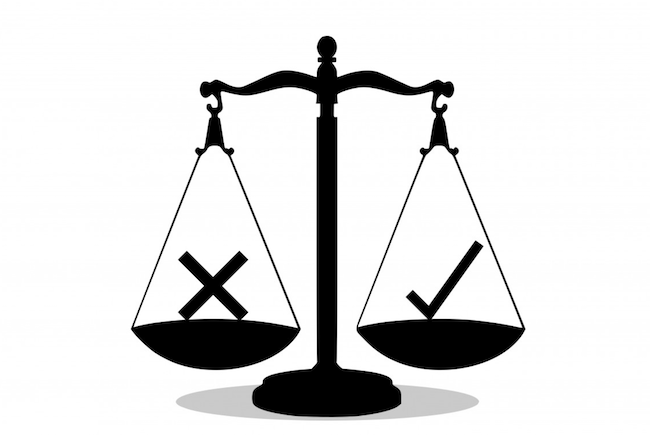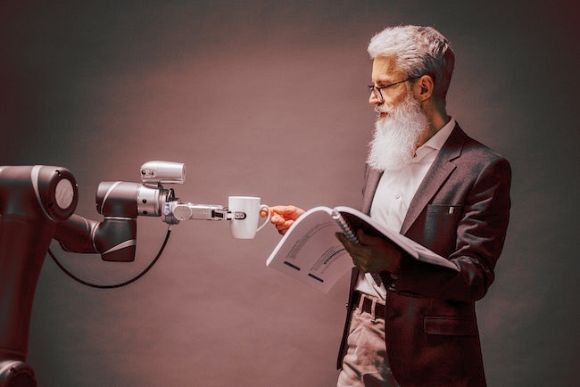Today’s citizens are better educated than any generation before, but a society needs more than knowledge — it needs wisdom. Paul Budde reports.
AS REGULAR READERS of my articles will know, I like to explore the intersection of technology, economics and international affairs through a philosophical lens.
At the moment, I’m following the course Philosophy of Passion and Reason: Hume to Martha Nussbaum by Dr Kerry Sanders — someone I’ve referenced in earlier pieces. This week’s discussion centred on the role of emotions and passions in shaping rational frameworks and societal decisions. It sparked reflections that I have woven into this article, where I examine how these philosophical ideas relate to the way we approach technology, education and moral reasoning in today’s world.
In today’s hyper-connected world, we pride ourselves on being educated and technologically advanced. We’ve built economies on innovation, filled our classrooms with STEM priorities and turned universities into pipelines for workforce readiness. But behind this façade of progress lies a growing deficit: not of knowledge, but of wisdom.
What kind of society are we actually building? That’s a question we’re no longer trained – or encouraged – to ask. In our rush to produce job-ready graduates, we’ve neglected the very disciplines that help us question the moral foundations of power, wealth and technology. We’ve prioritised productivity over philosophy, and skills over ethics.
The instrumentalisation of education
Modern education in the West has become tightly tethered to economic performance. The implicit goal is no longer to form citizens, but to train workers —ideally, highly-paid ones. Success is measured by income rankings, not by one’s contribution to justice, democracy, or community well-being.
I’ve written before on the dangers of economic monocultures and the increasing fragility of our global systems. But much of that fragility stems from this foundational issue: we are building systems with enormous power but training people to optimise them, not question them. As long as economic growth and personal wealth are our primary metrics, educational institutions will continue to reflect those values — at the cost of public ethics.
The moral void in our technological age
This failure is especially evident in how we deal with technology. Algorithms determine what we see, what we believe and sometimes even what governments prioritise. AI advances faster than regulation. Social media distorts emotional discourse while extracting profit from polarisation. And yet, the design and deployment of these systems remain largely unchallenged by moral scrutiny.
We are constantly told that innovation is good for us — faster, smarter, more convenient. But to what end? Without a strong ethical framework, technology becomes a tool for exploitation as much as for progress. As I argued in a previous article on Central Bank Digital Currencies (CBDCs) and digital sovereignty, if we do not embed values like equity, transparency and human dignity into our systems from the start, we risk replicating and amplifying existing injustices at digital speed.
What Peter Singer teaches us
These are not just technical risks — they are moral ones. They demand the kind of ethical reasoning that Australian philosopher Peter Singer has spent decades advocating.
Singer’s work reminds us that knowledge without responsibility is not progress, and that education must prepare us not only to innovate, but to care.
His utilitarian framework — aimed at maximising well-being and reducing harm — offers a rational yet deeply moral basis for decision-making in an increasingly complex world. Through his work on effective altruism, he demonstrates how emotion and reason can be aligned: our impulse to care becomes the foundation for globally impactful, data-informed action.
In an era where both emotion (via populism) and reason (via technocracy) are often manipulated, Singer shows us that moral clarity is not about choosing one over the other, but about guiding both toward ethical outcomes.
Singer’s call for ethical education is especially relevant. He has argued that students should be challenged not only to choose a career, but to reflect on how their knowledge and choices affect others — particularly the vulnerable. That ethos is sorely lacking in today’s economic and technological discourse.
Education for wisdom, not just work
If we want to avoid a future where real change only arrives through collapse or catastrophe – as has so often been the case throughout history – we must change how we educate. That means:
- embedding ethics, philosophy, and emotional intelligence into mainstream education, not treating them as electives for “idealists";
- training technologists, economists, scientists and leaders to think beyond profit, efficiency, or growth; and
- encouraging public discourse that honours compassion and curiosity rather than outrage and cynicism.
We often tell ourselves that today’s citizens are better educated than any generation before. But better educated in what? The humanities, ethics, and critical thinking have been sidelined, even as the need for moral reasoning in the face of AI, climate change and geopolitical instability has never been greater.
A final thought
Reason without empathy leads to cold calculation. Emotion without reason leads to manipulation. A just society needs both. Yet too many of our institutions— especially education — train people to serve systems rather than reflect on them.
Until we shift that dynamic, we may remain, as philosopher David Hume might have put it, creatures of passion governed by systems we no longer understand.
If we want to avoid another century of crisis-driven transformation, we must educate not just for knowledge, but for wisdom.
Paul Budde is an IA columnist and managing director of independent telecommunications research and consultancy Paul Budde Consulting. You can follow Paul on Twitter/X @PaulBudde.
 This work is licensed under a Creative Commons Attribution-NonCommercial-NoDerivs 3.0 Australia License
This work is licensed under a Creative Commons Attribution-NonCommercial-NoDerivs 3.0 Australia License
Support independent journalism Subscribe to IA.














